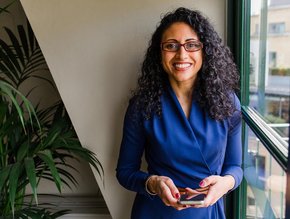
The more girls we can recruit for climate action, the better.
But climate change can be a difficult topic to discuss with children; how on earth do you explain the disastrous effects that it’s having on the planet, without arousing fear and panic?
Nevertheless, as climate change is a vast issue that touches many different aspects of our everyday lives, it needs to be addressed as early as possible. It’s therefore paramount that we ensure young girls are raised to be eco-conscious while being taught how to lead a sustainable lifestyle from a young age.
Creating sustainable futures
Michelle Li, Founder and CEO of Clever Carbon and Women and Climate, shares that one of the most simple ways to introduce girls to a sustainable lifestyle is to lead by example and be a role model. “Parents have big opportunities to help children learn more about sustainability and the climate by incorporating conscious thinking into their everyday life,” Michelle says.
To educate our children, however, we first need to educate ourselves. “Teaching kids is important, but teaching parents is equally important. After all, they control the budget, they decide what gets bought and they choose the lifestyles that the family leads. Once parents understand what they can do to improve their lifestyles, they can pass this knowledge on to their children. For this reason, I encourage parents to focus on actions and things that can be done today to show children that their impact makes a difference.”
Another aspect parents can educate their children on is their diet and understanding how they can make more sustainable choices by being conscious of what they eat.
“Food and diet are major factors,” Michelle says. “For example, parents can start by including more plant-based meals in the weekly food plan, shopping locally for seasonal ingredients, and including children in the conversations about why these choices are better for the planet.”
This, of course, extends into everyday life, with Michelle urging parents to teach children how to compost and recycle correctly, while encouraging them to shop from zero-waste stores and even grow their own fruit and vegetables in the garden.
“There are fun ways in which these lifestyle choices can be introduced to children,” Michelle explains. “For example, by asking children to collect, weigh and record the waste that they accumulate, and then encouraging them to reduce this amount each week or month. This will not only enable them to learn how to reduce their waste, but it will incentivise them to be conscious about the waste that comes with the products they’re purchasing.”
Fast fashion has become another well-known climate killer. Now, a whole new outfit can be purchased for pennies at the swipe and click of a button. That’s why it's important to educate children on the alternative options available to them, such as buying second-hand or mending items once they’re ripped or broken.
“We live in a world where everything can be bought instantly, which can cause many of us to buy products, especially clothing, that we don’t need,” Michelle explains. “Parents can show their children that purchases don’t have to be immediate by taking them to thrift stores, searching around at other retailers and asking them to question whether they really need the purchase.”
So whether you want to start with the clothes on your back, the food you eat or the rubbish that you throw away, there are small steps we can all take towards living a more sustainable lifestyle. But what’s really important is passing these down to the generations to come.






